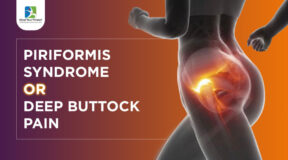Approximately 80% of all severe cases involving anorexia or bulimia have a coexisting major depression diagnosis. Depression is a very painful and all consuming disorder in and of itself. However, in combination with an eating disorder, depression is beyond devastating and is often masked within the eating disorder itself. Depression in eating disorder clients looks different than it does in clients who have mood disorder alone. One way to describe how depression looks in someone who is suffering with an eating disorder is: hidden misery. For eating disorder clients, depression takes on a heightened quality of hopelessness and self-hatred. And becomes an expression of their identity, not a list of unpleasant symptoms.
The depression becomes intertwined with the manifestations of the eating disorder, and because of this interwoven quality, the depressive symptoms are often not clearly distinguishable from the eating disorder. One purpose of this article is to highlight some of the distinctions. And differences in how depression manifests itself in someone suffering with anorexia or bulimia. Another purpose is to provide suggestions that will begin to foster hope for these hopeless clients within the therapy setting.
When dealing with eating disorder cases, it is important to understand that if major depression is present, it is most likely present at two levels. First, it will be evident in a history of chronic, low level, dysthymic depression, and secondly. There will be symptoms consistent with one or more prolonged episodes of acute major depressive disorder. The intensity and acuteness of the depression is not always immediately recognizable in how the client is manifesting their eating disorder.
Clinical history taking will reveal chronic discouragement, feelings of inadequacy. Low self-esteem, appetite disturbance, sleep disturbance, low energy, fatigue, concentration troubles. Difficulty making decisions, and a general feeling of unhappiness and vague hopelessness. Since most eating disorder clients do not seek treatment for many years. It is not uncommon for this kind of chronic dysthymic depression to have been in their lives anywhere from two to eight years. Clinical history will also reveal that as the eating disorder escalated or became more severe in its intensity. There is a concurrent history of intense symptoms of major depression.
Oftentimes, recurrent episodes of major depression are see in those with longstanding eating disorders. In simple words, eating disorder clients have been discouraged for a long time, they have not felt good about themselves for a long time, they have felt hopeless for a long time, and they have felt acute periods of depression in which life became much worse and more difficult for them.





